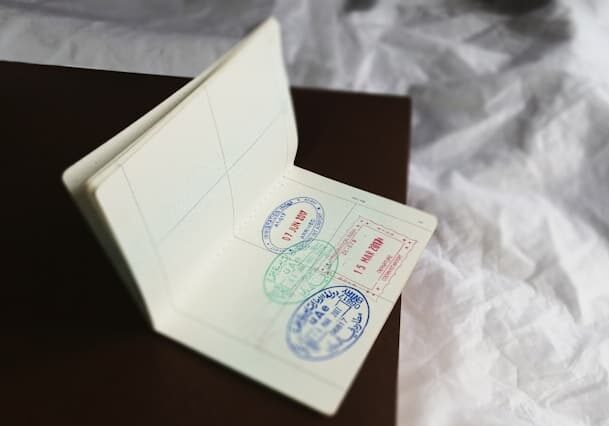A second residence allows you to live in a country where you are not a citizen, offering long-term stays without depending on tourist visas. It can be gained through investment, work, retirement, or special visa programs, providing greater stability and mobility.
Second residence also refers to owning a second home or investment property abroad. In some countries, buying property can lead to legal residency, offering financial benefits, tax advantages, and a relocation option if needed.
This guide will explain the difference between a second home and an investment property and how buying a second residence abroad can help you obtain residency or citizenship. We will also explore residency options, how to apply, and investment routes that can speed up the process.
Here is what to expect:
- What are second residences?
- Second Homes vs Investment Properties
- Tax Implications of Owning an Investment Property or Second Home
- Five Factors to Consider When Buying a Second Home or Investment Property
- Possible Financing Options for a Second Home
- Reasons to Purchase a Second Home
- Permanent Residence vs Temporary residence
- Residency by investment
- Resident vs Tax Resident
- How to Obtain a Second Residence
- Advantages of Second Residence
- Second Residence Misunderstandings
- Frequently Asked Questions
What is a second residence?
 Second residence is the legal right to live in a country where you are not a citizen. It allows long-term stays without relying on tourist visas and can be obtained through investment, work, retirement, or special visa programs.
Second residence is the legal right to live in a country where you are not a citizen. It allows long-term stays without relying on tourist visas and can be obtained through investment, work, retirement, or special visa programs.
A second residence can also refer to owning a second home or investment property in another country. Some countries offer residency to property buyers, allowing them to live there legally. This can provide financial benefits, tax advantages, and a backup plan for relocation.
People get a second residence for investment, retirement, lifestyle, or business. Buying a second home or investment property can help with legal residency or even citizenship, providing financial benefits and international mobility.
Global Intelligence Unit’s “The Transformation of Citizenship” report has shown that countries no longer see getting a second residence as a political allegiance but rather as a strategic asset for economic growth that offers individuals greater mobility, security, and economic opportunities.
Second Homes vs Investment Properties
A second home is a type of residential real estate purchased primarily for personal use, such as vacations or seasonal stays. It typically isn’t rented out for profit. It is financed through a second home mortgage, which often offers lower interest rates and lenient terms since lenders view it as a lower-risk property.
In contrast, an investment property, often referred to as an investment home, is acquired to generate income, usually through rental properties or resale. Financing for investment homes usually comes with higher interest rates and stricter loan requirements due to their higher risk in the housing market.
Tax Implications of Owning an Investment Property or Second Home
The tax implications of owning an investment property or second home can vary depending on the property’s location and purpose. For U.S. citizens, there are additional tax rules to consider, especially when properties are rented or located abroad.
Here’s a breakdown of the general and U.S.-specific tax considerations:
- Rental Income Tax: Income earned from renting the property is taxable and must be reported.
- Mortgage interest deduction: You can deduct mortgage interest, but limits are different depending on whether the property is for personal use or investment.
- Property taxes: Property taxes are deductible, though caps may apply in some cases.
- Depreciation: Investment properties can be depreciated annually to reduce taxable income.
- Capital Gains Tax: When selling the property, taxes may be owed on profits unless exclusions apply for primary residences.
- Tax-deductible expenses: For rental properties, expenses like maintenance, insurance, and repairs can often be deducted.
U.S.-Specific tax rules for property owners
- State Taxes: In addition to federal taxes, U.S. property owners may owe state and local taxes on rental income and property value.
- Vacation home rules: If a property is rented out and personally used for more than 14 days or 10% of the days it’s rented, it’s classified as a personal residence, impacting deductions.
- Foreign income reporting: U.S. citizens owning properties abroad must report rental income and adhere to Foreign Bank Account Reporting (FBAR) rules if accounts exceed $10,000.
- 1031 Exchange: U.S. property owners can defer capital gains taxes by reinvesting proceeds into a similar property under this rule.
- Mortgage deduction limits: Interest on mortgages is deductible only for up to $750,000 of combined debt across all properties.
Five Factors to Consider When Buying a Second Home or Investment Property
When buying a second home or investment property, here are five key factors to consider:
Purpose of purchase
Determine whether the property will serve as a second home for personal use or as an investment property for generating rental income. This decision influences financing, tax benefits, and potential returns.
Location
Choose a location that aligns with your goals. For a second home, proximity to amenities and lifestyle needs is essential, while for an investment property, areas with high rental demand and potential for property value appreciation are crucial.
Financing options
Understand the type of loan you need. A second home mortgage often requires a lower interest rate and down payment than investment property loans. Assess your financial situation and creditworthiness carefully.
Costs and taxes
Factor in additional costs like property taxes, maintenance, insurance, and utilities. Tax implications differ for second homes and rental properties, so consult a tax advisor to maximize deductions and comply with laws.
Market trends
Analyze the housing market in the area. For investment properties, consider rental yields and vacancy rates, while for second homes, focus on the value in the long run, stability and potential resale opportunities.
Possible Financing Options for a Second Home
Financing Option |
Description |
Key Requirements |
Pros |
Cons |
|
Conventional Mortgage Loans |
Traditional loan from a bank or lender with fixed or adjustable rates. Requires a 20% down payment. |
Credit score above 620, proof of ability to afford both homes’ payments. |
Lower interest rates for qualified borrowers. |
Higher down payment, strict eligibility. |
|
Home Equity Line of Credit (HELOC) |
Borrow against the equity in your current home. Lower interest rates. |
Must have sufficient equity in your primary home. |
Lower interest rates compared to unsecured loans. |
Risk of losing your primary home if unable to repay. |
|
Cash-Out Refinance |
Refinance your existing mortgage and use the extra funds for a second home. |
You must owe less than the home is worth and be willing to increase primary home debt. |
Lower interest rates compared to second mortgages. |
Increases debt on your primary residence. |
|
FHA Loans |
Government-backed loans for second homes, typically vacation homes. |
Must show the second property will be vacant most of the year and owner-occupied part-time. |
Lower down payment options. |
Restrictions on property use, must meet occupancy requirements. |
|
Investment Property Loans |
Loans for purchasing a second home to rent out. |
Requires a 25% down payment, property must generate rental income, and lenders evaluate debt-to-income ratio. |
Opportunities for rental income, potential tax benefits. |
Higher down payment and interest rates. |
|
Personal Loan |
Unsecured loan for financing a second home, not tied to the primary property. |
Higher interest rates, loan amounts may be limited. |
No collateral needed, fast approval. |
High interest rates, lower loan amounts. |
Reasons to Purchase a Second Home

Vacations
Buying a second home abroad gives you a relaxing vacation spot for part of the year. It’s a great way to enjoy a favorite destination with the comforts of home.

Rental income
Investment properties can earn rental income to cover mortgages and maintenance costs. Properties in top locations may also qualify for better lending terms and tax deductions.

Investments
Investing in rental or second homes can offer long-term returns through capital appreciation, especially in high-growth locations. This can help achieve financial goals faster and assist in managing mortgage debts on other properties.

Diversification of assets
A second home or investment property diversifies your portfolio and offers stability by reducing risk. It helps protect your finances from economic downturns in one country while providing potential for growth.

Tax benefits
Owning a second home or investment property can bring tax benefits like deductions for mortgage interest, property taxes, and rental-related expenses, reducing ownership costs and simplifying mortgage payments.

Citizenship and residency
Many countries also offer immigrant investor programs, like Golden Visas, that grant residency or citizenship with added benefits.

Retirement
A second home can serve as a pre-retirement vacation home, transitioning into a full-time retirement home later.

Inheritance
Having a second home offers legacy advantages by creating an asset to pass on to future generations without additional mortgage payments. Over time, its value appreciation can provide heirs with financial stability.
Permanent Residence vs Temporary residence
Getting a second residence permit can give you different benefits depending on whether it is a temporary or permanent residence permit. Both types of residence come with different rights and privileges, and the requirements to maintain them can vary.
Temporary residence, on the other hand, is for people allowed to stay in a country for a limited time, often based on specific reasons like work, study, or family ties. Temporary residents have fewer rights than permanent residents and must renew their status or leave the country once their permit expires.
Residency by Investment
Residency by investment allows people to obtain residency in a country through financial investments, such as buying property or investing in local businesses. Many countries offer Golden Visa programs, granting temporary residency that can often be renewed indefinitely. Investors must keep their investment property or business active to maintain this residency. While these visas start as temporary, they can lead to permanent residency and citizenship, depending on the country’s rules.
Here is a list of common residency by investment programs and their durations.
Program |
Minimum Investment |
Duration |
Renewable |
Terms |
|
€300,000 |
Permanent residence |
Not required |
Maintain the investment for five years | |
|
€250,000 |
Renewable permanent residence |
Not required |
Maintain the investment indefinitely | |
|
€250,000 |
Two years |
Renewable for three years |
Maintain the investment until eligible for permanent residence after five years | |
|
€110,000 |
Renewable permanent residence |
Not required |
Maintain the investment indefinitely | |
|
€250,000 |
Ten years |
Renewable for as long as it is maintained. |
Must live in the country for three years to qualify for permanent residency. | |
|
€500,000 |
Two years |
Renewable for three years |
Maintain the investment until eligible for permanent residence after five years | |
|
$800,000 |
Two years (conditional permanent residency) |
Not required |
Apply to remove conditional status after two years | |
|
Not applicable – Permanent residence |
Not required |
Not required |
No investment criteria, provided investors adhere to the program’s requirements | |
|
€250,000 |
Five years |
Renewable |
No minimum stay is required but applicant must live in the country for five years to qualify for permanent residence. | |
|
Not required |
Three years |
Renewable |
No minimum investment. Must purchase an apartment, residential building or business premisis. Permenent residence is possible after five years. |
Resident vs Tax Resident
A tax resident is someone who is considered to live in a country long enough that they are required to pay taxes there. This status is usually determined by how many days you spend in a country each year. For example, in many countries, spending over 183 days there makes you a tax resident, meaning you’re obligated to pay taxes on your worldwide income to that country.
On the other hand, residency refers to where you live or have a legal right to stay. It doesn’t necessarily mean you pay taxes there. You can be a resident of a country without being a tax resident, depending on factors like the type of visa you have, your job, or whether you own property.
Some countries offer tax programs that help investors, retirees, or residents save on their taxes. However, there are a few requirements to be met.
Here is a list of two available programs:
Program |
Requirements |
Tax Benefits |
|
Malta Global Residence Programme (GRP) |
• Non-EU/EEA/Swiss nationals can apply. |
• Taxable only on income earned in Malta or remitted there; capital gains from outside Malta are not taxed even if remitted. |
|
• Hold a Greece Golden Visa or possess a majority share of a Greek company. |
• Special tax treatment for 15 years.
| |
|
• Individuals must have been non-residents of Spain for the past 10 years.
|
• A flat 24% income tax applies to the first €600,000 of worldwide income earned, with earnings above this threshold taxed at 47%.
|
How to Obtain Second Residence
There are several ways to obtain a second residence, depending on your needs. Options include investment programs, retirement plans, or relocating for work. The best choice will depend on your personal situation and goals.
Reunification
Individuals with citizenship or residency can often petition for family reunification, typically for immediate family like children, parents, spouses, and legal partners. Some countries also extend this to siblings, grandparents, and other relatives.
Marriage
Marriage to a national is generally a qualifying criterion for a second residence permit. While it technically falls under family reunification, other countries separate the two, with an application process solely dedicated to foreigners married to citizens.
Business
Many countries offer second residence permits to entrepreneurs who start or invest in businesses. This can involve presenting a business plan, investing a set amount in existing businesses, or hiring local employees.
Investment
Residency by Investment Programs allow you to get another residence by investing in one of the program’s pre-approved investment options. Several EU countries, like Portugal, Greece, and Cyprus, offer Golden Visas, allowing investors to obtain EU residency in a few months.
Retirement
Self-sufficiency
Advantages of Second Residence

Expat lifestyle

Dual citizenship

Tax benefits
Spending over 183 days in a country usually makes you a tax resident, changing your tax obligations. Staying less than 183 days means you lose that status, which can be beneficial in low-tax countries. Some countries offer special tax regimes for investment.

Political and economic diversification
Second Residence Misunderstandings
Second citizenship
There’s a common misconception that second residences and second citizenship are interchangeable but distinct concepts. Second residence grants the right to reside in a country, while second citizenship grants full citizenship rights and a second passport.
Resident of nowhere
A grey area in tax law once allowed many travelers, especially digital nomads, to avoid taxes by not establishing clear tax residency. However, with globalization and more temporary visa options, stricter rules have been introduced to prevent tax avoidance through constant travel.
Visas are not permanent residence permits.
Many people confuse a visa with a residence permit. A visa lets you enter a country temporarily for specific purposes, like tourism or work. A residence permit allows you to live and sometimes work in a country for a longer period, often requiring renewal.
How Can Global Citizen Solutions Help You?
Global Citizen Solutions is a boutique migration consultancy firm with years of experience delivering bespoke residence and citizenship by investment solutions for international families. With offices worldwide and an experienced, hands-on team, we have helped hundreds of clients worldwide acquire citizenship, residence visas, or homes while diversifying their portfolios with robust investments.
We guide you from start to finish, taking you beyond your citizenship or residency by investment application.



